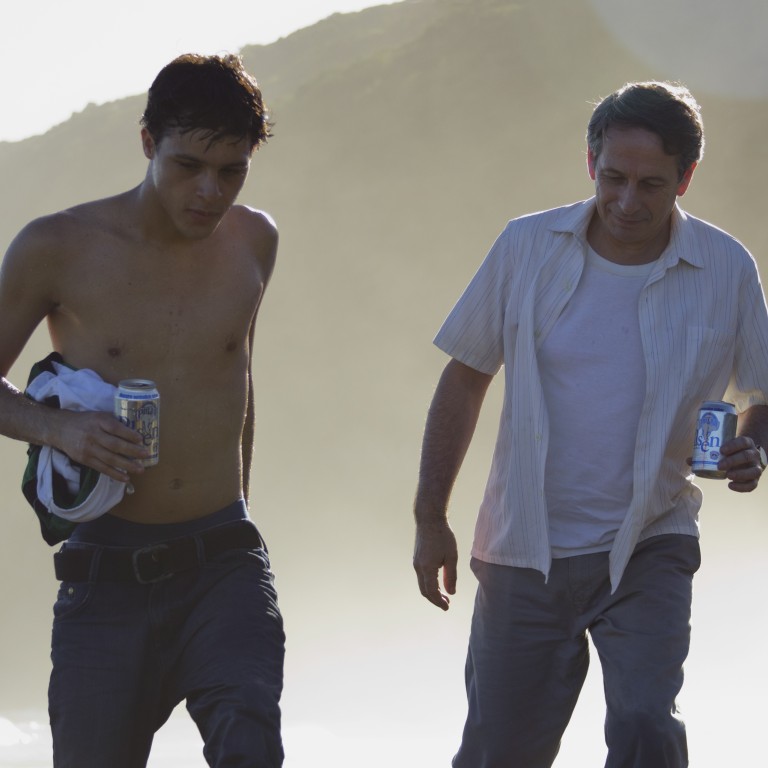
Venice Film Festival wraps up with a strong Latin American showing
Not all the selections were universally acclaimed - and some even met with boos
In the end, Venezuela was the talk of Venice. At this year’s 72nd edition of the Venice Film Festival, it was a little-fancied Latin American film that took the prestigious Golden Lion. The first Venezuelan movie ever to play in the festival, From Afar was also director Lorenzo Vigas’ first feature. That’s quite a way to start your career, even if this tale of a middle-aged gay man (Alfredo Castro) and his relationship with a young street hustler (Luis Silva) didn’t exactly top the critics’ charts.
Playing in the latter half of the festival, when the Lido was half-empty following the now-annual exodus to the Toronto Film Festival by swathes of journalists and industry folks, From Afar wasn’t the only Latin American film that did well by an auteur-heavy jury headed by Mexican director Alfonso Cuarón. Argentina’s Pablo Trapero took the Silver Lion for El Clan, his real-life crime saga about the Puccios, a family of kidnappers.
It’s a grimly compelling – and at times almost unbelievable – tale, as this middle-class clan ruthlessly abduct wealthy citizens living in their neighbourhood and extort huge ransoms from their relatives. Driven by a powerful performance by Guillermo Francella (The Secrets in Their Eyes) as the volatile patriarch Arquímedes, the film builds to an absolutely jaw-dropping final sequence – one that seems to sum up the horrifying, bloody and violent nature of this story.
Another big pleasure of this year’s festival was seeing the return of Charlie Kaufman. The Oscar-winning screenwriter behind Adaptation and Eternal Sunshine of the Spotless Mind hadn’t made a film in seven years, since his very singular directorial debut Synecdoche, New York. With numerous scripts rejected by studios, it took a Kickstarter campaign to help bankroll Anomalisa, a wondrous stop-motion animated film based on a radio play Kaufman wrote years earlier.
If Synecdoche was wilfully complex, this took the opposite direction: set in a Cincinnati hotel across a couple of days, it’s largely driven by one character – Michael Stone (voiced by David Thewlis), a motivational speaker in the midst of a mid-life mini-meltdown. Addressing issues of love, isolation and what it means to be human, all seasoned with Kaufman’s off-kilter humour, it’s beautifully realised – not least the astounding puppet-animated visuals from co-director Duke Johnson.
Anomalisa, which claimed the Grand Jury Prize, wasn’t the only strong American film on show; playing out of competition, Tom McCarthy’s Spotlight was an absorbing true story about how a team of investigative reporters on The Boston Globe unearthed evidence of sexual abuse and cover-ups in the Catholic Church. It’s comparable to All the President’s Men for its almost nostalgia-tinged depiction of crusading journalism.
Italian cinema saw Valeria Golino take Best Actress for her role as a Neapolitan woman juggling in Giuseppe Gaudino’s Per Amor Vostro – though it was another homegrown director who provoked the most divisive reaction. Luca Guadagnino, who previously made I Am Love with Tilda Swinton, returned with A Bigger Splash. Perhaps it was the fact that it was a remake of Jacques Deray’s 1969 film La Piscine, but it was roundly booed by sections of the crowd at both press screenings.
Whatever the local prejudices towards Guadagnino, the film had much going for it – not least an exuberant performance by Ralph Fiennes as Harry, a chatterbox record producer who arrives with his teenage daughter (Dakota Johnson) to shatter the tranquillity of his rock-star ex-lover, played by Swinton. While Fiennes was beaten to Best Actor by Fabrice Luchini for Courted, he certainly merited a prize for his dance moves, grooving to The Rolling Stones’ Emotional Rescue in a scene that’ll now be on his clip-reel forever.
It was also a strong festival for Australian cinema – with two family sagas, Sue Brooks’ fractured, absurdist Looking For Grace and theatre director Simon Stone’s finely observed melodrama The Daughter, unveiled. Both films star newcomer Odessa Young, and both about families with secrets. They were a potent reminder of Australian talent in front of and behind the camera.
If Young merited a shot at the Marcello Mastroianni award for Best Young Actor, nobody could bemoan it going to newcomer Abraham Attah, the plucked-from-the-streets star of Cary Fukunaga’s Beasts of No Nation. Attah’s portrayal of a child soldier in West Africa is mesmerising. If he decides to continue acting, he’ll have a very bright future.

 (1).JPG?itok=0BHk6odg&v=1665981271)